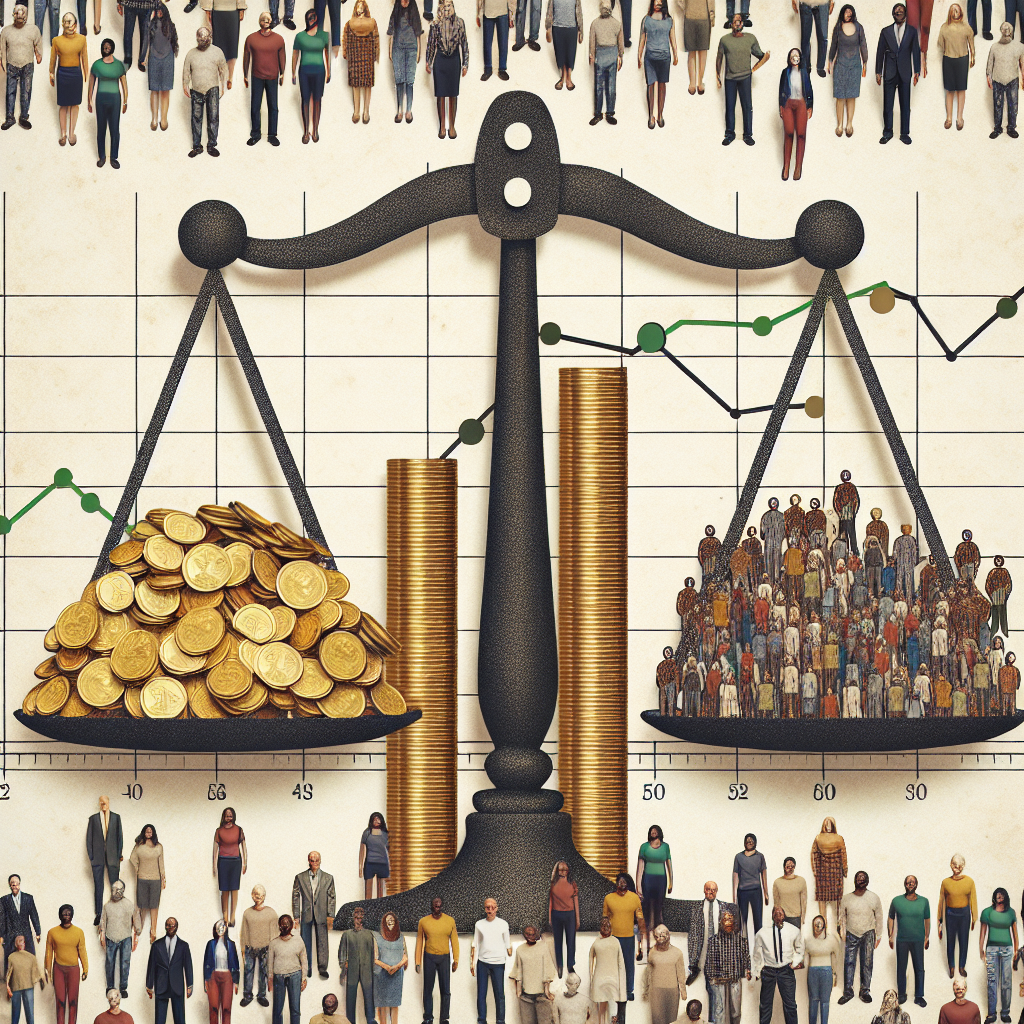Economic inequality and growth are two interrelated phenomena that have garnered significant attention in recent years. The relationship between the two is complex and multifaceted, with economists, policymakers, and researchers alike debating the exact nature of the link. While some argue that inequality can hinder economic growth, others posit that it may actually spur growth in certain circumstances. In this article, we will explore the various ways in which economic inequality and growth are connected and examine the potential implications for society as a whole.
Economic inequality refers to the unequal distribution of income and wealth within a society. Disparities in income and wealth can manifest in a variety of ways, including differences in wages, access to education, healthcare, and other resources. In recent years, global income inequality has risen steadily, with the wealthiest individuals and households accruing an increasingly larger share of the world’s wealth. This growing gap between the rich and the poor has raised concerns about social cohesion, political instability, and the overall health of the economy.
On the other hand, economic growth is typically measured by an increase in the production of goods and services within a country. Economic growth is often seen as a sign of a healthy economy, as it can lead to higher living standards, increased employment opportunities, and a higher standard of living for the population. However, the benefits of economic growth are not always distributed evenly, and rising income inequality can undermine the ability of growth to benefit the broader population.
One way in which economic inequality can hinder economic growth is through its impact on social mobility. When income and wealth are concentrated in the hands of a few individuals or families, it can limit opportunities for those at the lower end of the income distribution to move up the economic ladder. In societies with high levels of inequality, individuals from lower-income backgrounds may face barriers to accessing education, healthcare, and other resources that are essential for economic mobility. As a result, the economy may not be able to realize its full potential, as talented individuals from disadvantaged backgrounds are unable to contribute fully to economic growth.
Furthermore, high levels of economic inequality can lead to social unrest and political instability, which can undermine investor confidence and hinder economic growth. In societies with large income disparities, there may be heightened levels of social tension and conflict, as individuals and groups compete for scarce resources. This can create a climate of uncertainty and volatility, which is not conducive to sustainable economic growth. Additionally, high levels of inequality can erode social trust and cohesion, making it difficult for policymakers to implement reforms that are necessary for long-term economic growth.
Despite these potential drawbacks, some researchers argue that a certain level of economic inequality may actually be beneficial for economic growth. They posit that inequality can incentivize innovation and entrepreneurship, as individuals strive to improve their economic status. In this view, income inequality can be seen as a natural byproduct of a dynamic and competitive economy, rather than a hindrance to growth. However, it is important to note that excessive levels of inequality can still pose a risk to economic stability and long-term growth, as evidenced by the negative consequences of high inequality in many countries around the world.
In conclusion, the relationship between economic inequality and growth is a complex and multifaceted one. While some argue that inequality can stimulate economic growth by incentivizing innovation and entrepreneurship, others contend that high levels of inequality can hinder social mobility, create social unrest, and undermine long-term economic stability. In order to achieve sustainable and inclusive growth, policymakers must address the root causes of inequality and implement policies that promote equal opportunities for all individuals. By doing so, societies can ensure that the benefits of economic growth are shared more equitably and that the economy can reach its full potential.
FAQs
Q: What are some examples of policies that can reduce economic inequality?
A: Some examples of policies that can reduce economic inequality include increasing access to education and healthcare, implementing progressive taxation systems, raising the minimum wage, and investing in social safety nets such as unemployment insurance and food assistance programs.
Q: Does economic inequality vary across different countries?
A: Yes, economic inequality can vary significantly across different countries. Some countries, such as Norway and Sweden, have relatively low levels of income inequality, while others, such as the United States and South Africa, have higher levels of inequality.
Q: Can economic inequality be reduced without harming economic growth?
A: Yes, it is possible to reduce economic inequality without harming economic growth. By implementing policies that promote equal opportunities for all individuals, such as investing in education and healthcare, societies can ensure that the benefits of growth are shared more equitably.
Q: How can individuals contribute to reducing economic inequality?
A: Individuals can contribute to reducing economic inequality by supporting policies that promote equal opportunities for all individuals, volunteering and donating to organizations that help those in need, and advocating for social and economic justice in their communities.
